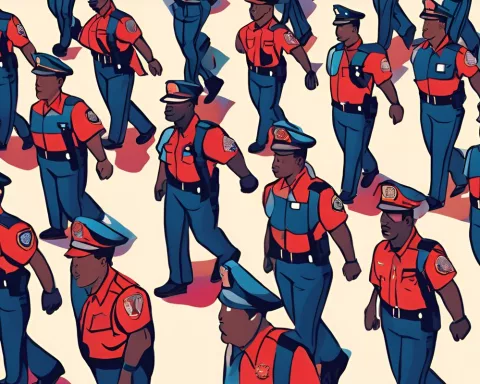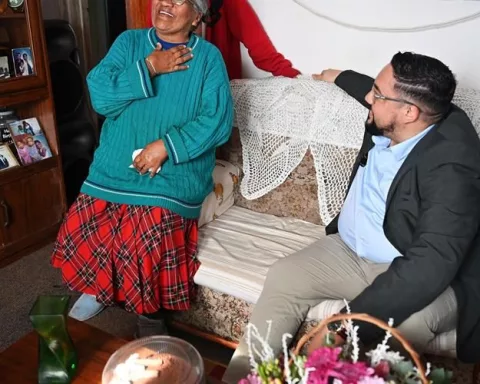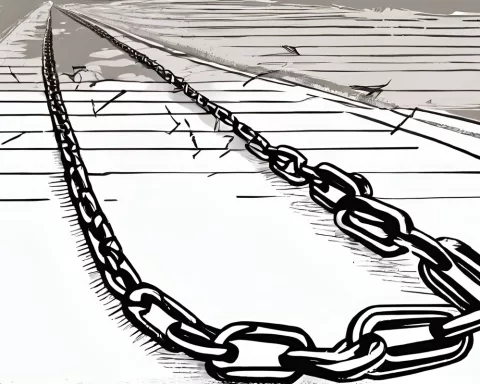Lydia Komape-Ngwenya was a South African activist who fought for workers’ rights, women’s empowerment, and the end of apartheid. She founded the Rural Women’s Movement and continued to advocate for social justice after apartheid ended. Komape-Ngwenya’s legacy lives on through the recognition of her achievements and her impact on future generations of advocates. Her recent passing has resulted in a Special Provincial Official Funeral, Category 2, and South Africans are grieving the loss of a true hero in their history.
Who was Lydia Komape-Ngwenya and what was her impact on South Africa?
Lydia Komape-Ngwenya was a South African activist who dedicated her life to fighting for workers’ rights, women’s empowerment, and the end of apartheid. She founded the Rural Women’s Movement and continued to advocate for social justice after apartheid ended. Her legacy lives on through the recognition of her achievements and her impact on future generations of advocates.
A Life of Advocacy and Empowerment
South African President Cyril Ramaphosa recently revealed that Lydia Komape-Ngwenya, a well-known activist, will be granted a Special Provincial Official Funeral, Category 2. This esteemed honor acknowledges her lifelong dedication to workers’ rights, women’s empowerment, and the fight against apartheid. South Africans, particularly those in Limpopo province, grieve the loss of a true hero in their history.
Komape-Ngwenya was born on a farm in Northern Transvaal, leading a modest life in her early years. Her father acted as a deacon in the Lutheran Mission, managing livestock and sweet potatoes, while her mother ventured to Johannesburg to work as a domestic worker. Eventually, Komape-Ngwenya followed her mother’s path, relocating to Johannesburg in search of employment.
In the 1970s, she joined the Metal and Allied Workers Union (MAWU) and rose to become one of the few female leaders in the organization. Her unwavering commitment to workers’ rights resulted in her termination in 1976 after organizing a solidarity protest in response to the Soweto uprising. However, this did not deter her; she was soon recruited as a full-time union organizer by MAWU.
Founding the Rural Women’s Movement
In 1986, after ten years, Komape-Ngwenya returned to her rural origins and started working for Black Sash. Within this organization, she established the Rural Women’s Movement (RWM) to bring attention to women’s issues during negotiations to end apartheid. Drawing from her personal experiences, she interacted with tribal authorities to push for women’s involvement in decision-making processes and socio-political activities.
For her unwavering dedication to social justice, she received the prestigious Order of Luthuli in Bronze in 2009, an award presented to her by then-President Kgalema Motlanthe. This honor recognized her relentless efforts in advocating for workers’ rights, empowering rural women, and striving for liberation from the oppressive apartheid system.
Post-Apartheid Political Activism
After apartheid ended in 1994, Komape-Ngwenya maintained her activism within the political sphere. She was a member of the National Assembly and contributed to committees focused on agriculture, land affairs, and enhancing women’s quality of life and status. Notably, she backed the approval of maintenance bills that provided legal recognition to customary marriages.
Komape-Ngwenya continued her service to her nation as a member of the Limpopo Legislature for two terms, eventually retiring after the 2019 elections. Throughout her remarkable career, she consistently advocated for the disenfranchised and marginalized, positively impacting countless lives.
Upon learning of Komape-Ngwenya’s passing, Limpopo Premier Chupu Stanley Mathabatha expressed deep condolences, saying, “As a province and country, we have lost a giant, a woman and mother who fought endlessly for the emancipation of women at all costs.” He also offered comfort to her family, friends, and fellow activists, noting that her legacy would continue to inspire future generations of advocates.
Honoring a Legacy
The ceremony to honor Lydia Komape-Ngwenya will take place on October 21, 2023, in the Sekhukhune District Municipality, Ephraim Mogale Local Municipality, at Tsimanyane. The event promises to be a solemn and fitting tribute to a woman who dedicated her life to the pursuit of justice and equality for all South Africans.
As we reflect upon the life and impact of Lydia Komape-Ngwenya, it is crucial to recognize and appreciate her tireless commitment to social justice and empowerment. Her story serves as a lasting testament to the power of resilience and the potential for change when individuals stand against the odds. In honoring Komape-Ngwenya’s memory, we celebrate her extraordinary accomplishments while pledging ourselves to continue advocating for a more just and equitable society for all.
1. Who was Lydia Komape-Ngwenya and what was her impact on South Africa?
Lydia Komape-Ngwenya was a South African activist who dedicated her life to fighting for workers’ rights, women’s empowerment, and the end of apartheid. She founded the Rural Women’s Movement and continued to advocate for social justice after apartheid ended. Her legacy lives on through the recognition of her achievements and her impact on future generations of advocates.
2. What did Lydia Komape-Ngwenya do to fight for workers’ rights?
In the 1970s, Lydia Komape-Ngwenya joined the Metal and Allied Workers Union (MAWU) and became one of the few female leaders in the organization. Her unwavering commitment to workers’ rights resulted in her termination in 1976 after organizing a solidarity protest in response to the Soweto uprising. However, this did not deter her; she was soon recruited as a full-time union organizer by MAWU.
3. What is the Rural Women’s Movement and when was it founded?
The Rural Women’s Movement (RWM) was founded by Lydia Komape-Ngwenya in 1986. It was established within the Black Sash organization to bring attention to women’s issues during negotiations to end apartheid. The RWM focused on women’s involvement in decision-making processes and socio-political activities.
4. What honor was presented to Lydia Komape-Ngwenya by then-President Kgalema Motlanthe?
In 2009, Lydia Komape-Ngwenya received the prestigious Order of Luthuli in Bronze, an award presented to her by then-President Kgalema Motlanthe. This honor recognized her relentless efforts in advocating for workers’ rights, empowering rural women, and striving for liberation from the oppressive apartheid system.
5. What committees did Lydia Komape-Ngwenya contribute to as a member of the National Assembly?
Lydia Komape-Ngwenya contributed to committees focused on agriculture, land affairs, and enhancing women’s quality of life and status as a member of the National Assembly after apartheid ended in 1994.
6. What did Lydia Komape-Ngwenya do as a member of the Limpopo Legislature?
Lydia Komape-Ngwenya served as a member of the Limpopo Legislature for two terms, where she continued to advocate for the disenfranchised and marginalized, positively impacting countless lives.
7. When and where will the ceremony to honor Lydia Komape-Ngwenya take place?
The ceremony to honor Lydia Komape-Ngwenya will take place on October 21, 2023, in the Sekhukhune District Municipality, Ephraim Mogale Local Municipality, at Tsimanyane.
8. What can we learn from Lydia Komape-Ngwenya’s legacy?
Lydia Komape-Ngwenya’s legacy serves as a lasting testament to the power of resilience and the potential for change when individuals stand against the odds. In honoring her memory, we celebrate her extraordinary accomplishments while pledging ourselves to continue advocating for a more just and equitable society for all.








